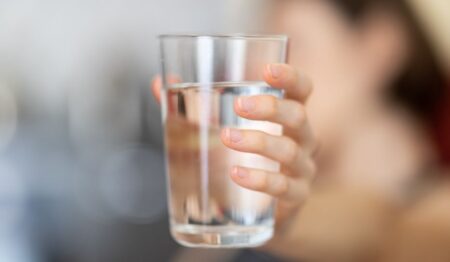How would you like to extend your life span and reduce your chances of all kinds of diseases like heart failure, stroke, diabetes and dementia?
According to a US study earlier this year, all this could be done simply by drinking more water.
This study found that adults who drank more water drastically decreased their chances of developing chronic illnesses and even improved their life expectancy.
The science can get a little confusing but at a basic level, if you drink more water, the sodium in your blood is less concentrated.
Sodium is a mineral found in many foods. Your body needs sodium. Most table salts are made from sodium chloride. So, salt used when preparing or flavouring foods usually contains sodium. The words sodium and salt are often used interchangeably.
Healthdirect, the Australian Government’s health information website, says high levels of sodium can increase blood pressure. This is a major risk factor for heart disease, strokes and a whole range of other health issues.
So, if you’re looking to improve your life expectancy and quality of life, it’s time to start hydrating more.
This is especially important as you age.
The older you get the more prone you become to dehydration. Your body has fewer and fewer water reserves available but also takes longer to trigger a thirst response.
This means you need to be more proactive about drinking water to stay healthy.
How much should you be drinking exactly?
The answer always changes depending on who you ask and who’s asking.
Obviously, if you’re a bigger person or are more active you’ll need to be drinking more than someone else who is smaller and spends a lot of time sitting down.
But as a general rule of thumb the healthdirect website suggests drinking around two litres of water a day.
In most cases, it’s completely safe to go ahead and increase your water intake. But if you have underlying health conditions or medications, it’s a good idea to chat with your doctor. Some medications can cause fluid loss, so you’ll have to drink more and sometimes limiting fluid intake is used as a treatment plan, for example if you have low sodium levels.
Drinking two litres of water a day can be harder than it sounds, but keeping a water bottle on you to sip throughout the day seems a small price to pay for a few extra healthy years.
